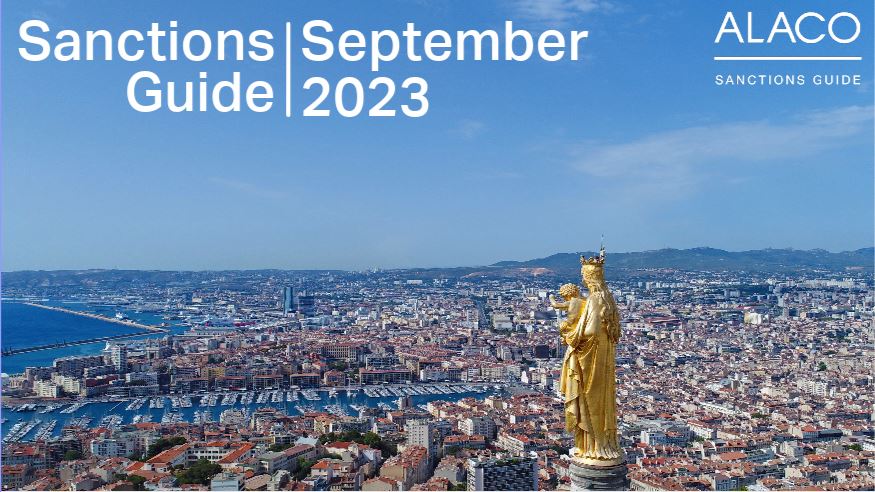OFAC, the EU and OFSI have continued to focus this month on strengthening the effectiveness of sanctions against the Russian and Belarusian war effort in Ukraine. Notably, OFAC and the EU have both announced extensive new measures designed to target the Belarus industrial and logistics sectors.
In the area of enforcement world, the first UK-designated national to challenge his designation before the High Court of England and Wales had his appeal rejected, and a former FBI Special Agent in the US has admitted charges of money laundering, as well as of violating US sanctions to work in support of sanctioned Oleg Deripaska.
Elsewhere, the EU has established a new sanctions programme targeting the unrest in Haiti, although to date no new designations have been made under this regime.
Russia and Belarus
- Over the past month the EU and OFAC have taken action to disrupt Russia’s co-operation with key allies supporting its war effort in Ukraine. Belarus has been the key target for these measures, with the EU expanding its sanctions regime on the country to include an export ban on goods and technology suitable for use in aviation and the space industry, including aircraft engines and drones; a prohibition on the sale sale, supply, transfer or export of firearms, their parts and essential components and ammunition; and further export restrictions on semiconductor devices, electronic integrated circuits, manufacturing and testing equipment, photographic cameras and optical components.
- Alongside these new measures, on 3rd August the EU imposed sanctions on 38 individuals and three entities from Belarus “who are responsible for serious human rights violations, contribute to the repression of civil society and democratic forces, [and/or] benefit from and support the Lukashenko regime”. The new listings include penitentiary officials, judges, prosecutors, criminal investigators, and TV presenters.
- OFAC has also targeted the Belarus aviation sector, designating eight individuals and five entities, including the country’s state-owned flag carrier, Belavia, with new sanctions coinciding with the third anniversary of the country’s 2020 Presidential Election. Designated alongside the aviation-related targets were the country’s Department of Financial Investigations of the State Control Committee and the investigative arm of the Department of Financial Monitoring, which had allegedly raided the editorial office of an independent online news site. The US Department of State simultaneously imposed visa restrictions on 101 regime officials and their affiliates, including several judges allegedly responsible for politically motivated sentences.
- OFAC has also targeted entities in North Korea, Kazakhstan and Slovakia associated with the supply of arms to Russia. On 16th August it designated three entities allegedly linked to a sanctions evasion network facilitating this trade, including Russia-incorporated LLC Verus, Kazakhstan-registered Defense Engineering LLP and Slovakian company Versor S.R.O. The three entities are controlled by Slovakian national Ashot Mkrtychev, who is already sanctioned, and who allegedly organised the arms sales.
- Following on from US actions earlier in the summer, in August the UK House of Commons’ Foreign Affairs Committee published a report entitled ‘Guns for Gold: the Wagner Network Exposed’, detailing the development of the Wagner Group’s funding network over the past decade and criticising the British Government’s response to it. The report names individuals and entities in Russia, CAR, and Syria who are not sanctioned by the UK but who the Committee believes are associated with the Wagner Network. It goes on to recommend the proscription of the Wagner Network as a terrorist organisation.
New Russia-related Designations
- Coinciding with new measures targeting the Russian war effort, OFAC and OFSI have made a number of new designations of Russian individuals and entities deemed to have been involved in internal repression in Russia and occupied Ukraine. On 1st August OFSI sanctioned six judicial figures involved in the trial of Putin critic and dual British and Russian national, Vladimir Kara-Murza. These included Vitaly Alexsandrovich Belitsky, Ekaterina Mikhailovna Dorokhina, and Natalia Nikolaevna Dudar, the judges who oversaw the prosecution; Boris Georgievich Loktionov and Anna Evgenievna Potychko, the prosecutors in the criminal proceedings; and Danila Yurievich Mikheev, the state prosecution’s ‘expert witness’ in the trial.
- Later in August, the US designated two entities and 11 individuals which have reportedly played a role in the forced deportation of Ukrainian children from Russia-occupied areas of Ukraine to Russia. Those designated included five government officials; the Federal State Budgetary Educational Institute International Children Centre and its director; a special police battalion commander in the Russian Ministry of Internal Affairs; The Akhmat Kadyrov Foundation; and the Russia-appointed head of Sevastopol State University in Crimea, who allegedly oversees a re-education programme for Ukrainian children.
- OFAC has also designated four FSB operatives who were allegedly involved in the August 2020 poisoning of Russian opposition leader, Aleksey Navalny: Alexey Alexandrovich Alexandrov, Konstantin Kudryavtsev, Ivan Vladimirovich Osipov and Vladimir Alexandrovich Panyaev. The Department of State simultaneously imposed visa restrictions against the same individuals.
New US Investment Restrictions
- On 10th August US President Biden signed an executive order which will take effect next year, authorising the Secretary of the Treasury to regulate US investments into entities in certain “countries of concern” engaged in activities involving sensitive technologies. China is currently identified as a country of concern, with investment three sectors there currently subject to regulation: semiconductors and microelectronics, quantum information technologies and AI. Certain transactions will be prohibited and others will require pre-notification to the Treasury.
- The new executive order followed the publication on 2nd August of an unclassified report by the US Office of the Director of National Intelligence which suggests China’s support for the Russian war effort. The report found that China had increased its volume of Russian oil and gas imports, overtaking India as the largest buyer of Russia crude, and was “probably” supplying Moscow with key technology and dual-use equipment used in Ukraine. The report also claimed that PRC firms are “probably assisting Russia in circumventing export controls”.
Haiti
- The EU established this month a new autonomous sanctions regime targeting the ongoing disorder in Haiti, allowing it to impose sanctions on individuals and entities responsible for threatening the country’s peace, security or stability, or undermining democracy or the rule of law. The framework complements the sanctions imposed by the UN in October 2022. No individuals or entities have yet been designated under the new regime.
New Designations
- On 10th August the UK, US and Canada announced coordinated sanctions against Riad Salameh, Lebanon’s former Central Bank governor, and his close associates, for their alleged roles in the embezzlement of over $300 million. Alongside Salamah, designations were issued against his brother Raja Salameh, his former assistant Marianne Hoayek and his former partner Anna Kosakova. The US also designated his son, Nady Salameh.
- OFAC has made a number of additional designations this month, under its Balkans, Counter Terrorism and anti-narcotics programmes. On 1st August OFAC designated Nenad Stevandic, Speaker and President of the Republika Srpska National Assembly, Radovan Viskovic, Republika Srpska Prime Minister, and Milos Bukejlovic, Minister of Justice of Republika Srpska, for encouraging the passage of a law that purports to declare the decisions of a Bosnian Constitutional Court inapplicable in the Republika Srpska, thus obstructing the implementation of the Dayton Peace Agreement.
- On 2nd August OFAC designated 20 ISIS, ISIS-Khorasan and Al Qaida in the Maldives operatives and 29 associated companies under its count-terrorism program. Those designated included alleged members of the Addu City cell, an ISIS-affiliated cell based in Addu City, Maldives, notably its emir, Jinaau Naseem, and members of the Maldives criminal gang Kuda Henveyru.
- On 9th August OFAC designated three Sinaloa cartel operators: Alfonso Arzate Garcia, and his brother, Rene Arzate Garcia and Rafael Guadalupe Felix Nuñez.
- On 16th August the US Department of State designated three DRC public officials as ineligible for entry into the US, due to their alleged involvement in significant corruption: Cosma Wilungula Balongelwa, the former Director General of Congolese Institute for the Conservation of Nature (ICCN), Leonard Muamba Kanda, the former Department Head of the DRC Management Authority for the Convention on International Trade in Endangered Species of Wild Fauna and Flora (CITES) and Director of ICCN, and Augustin Ngumbi Amuri, the Director-Coordinator of the DRC CITES Management Authority and Legal Advisor to ICCN. The wives of each were also designated.
- On 23rd August the US Department of State imposed visa restrictions on 100 Nicaraguan municipal officials for their alleged link to the closure of the Universidad Centroamericana (the only university not run by the government), and the detention of Bishop Rolando Álvarez, a critic of the Ortea-Murillo regime.
Enforcement
- US enforcement actions this month have included an agreement between OFAC and Construction Specialties Inc (“CS”), a New Jersey-headquartered company that sells specialized building materials, according to which CS paid $660,594 to resolve three apparent violations of the US Iran sanctions programme by its UAE subsidiary. CS had reportedly become aware of the violations following a tip-off from an employee of the UAE subsidiary. Its immediate response – terminating all Iran-related business activity and responsible employees and voluntarily reporting the matter to OFAC – was regarded by OFAC as a mitigating factor when determining the penalty amount.
- On 15th August the former Special Agent in Charge of the FBI Counterintelligence Division in New York, Charles McGonigal, pleaded guilty to money laundering and conspiring to violate the International Emergency Economic Powers Act. The offences were connected to his 2021 agreement to provide services to Oleg Deripaska, a sanctioned Russian businessman, by investigating a rival businessman on his behalf. As an FBI agent, McGonigal had been part of an investigation that led to Deripaska’s designation.
- German media reports note that a German businessman, named only as Waldemar W, has been detained for allegedly providing electrical components to Russia that were used to make Orlan-10 drones deployed in the Ukraine war. Prosecutors allege that Waldemar W exported components of a total value of over €700,000 to a Russian defence company in 26 different instances using “sham beneficiary companies” in Dubai and Lithuania.
- Earlier this month, the High Court of England and Wales handed down a judgement on Russian national’s Eugene Shvidler’s appeal against his designation – the first sanctions designation appeal in the UK courts. The UK-designated Shvidler on 24th March 2022 as it assessed him to be associated with Roman Abramovich and for his role as a director of Evraz PLC. The appeal was rejected, with the court finding that the UK’s decision to designate Shvidler was proportionate and non-discriminatory.


